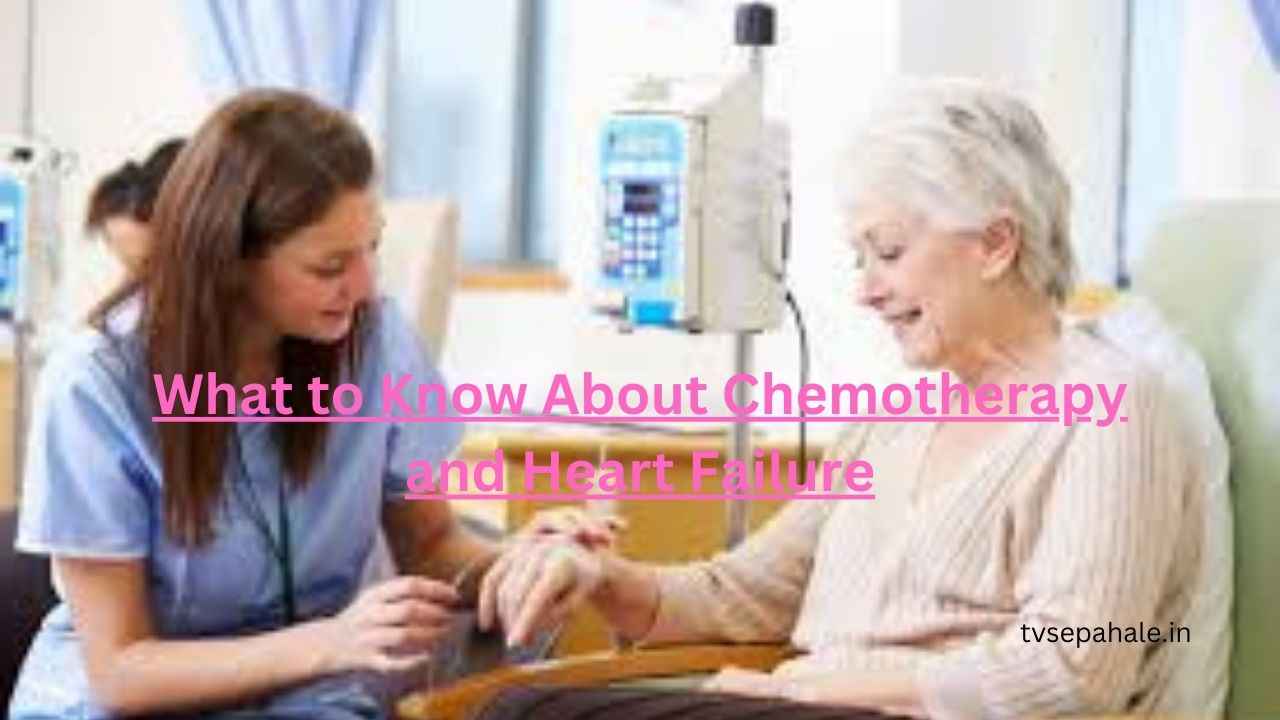The majority of chemotherapy patients do not experience heart failure. Certain chemotherapy medications, however, may greatly raise your risk of heart failure and other cardiac issues.
Although chemotherapy is an effective cancer treatment, there are significant dangers and adverse consequences that must be considered, such as the possibility of heart failure.
Learn more about the potential effects of chemotherapy on your heart and how to reduce the risk by reading on.
Does chemotherapy cause heart failure?
Cardiotoxicity is a side effect of some chemotherapy medications that can harm your heart.
This danger can occur frequently, depending on the particular chemotherapy medication. For instance, the European Society of Cardiology states that up to nearly half of all individuals may have cardiotoxicity from high doses of doxorubicin.
One of the most dangerous and sometimes fatal forms of cardiotoxicity is heart failure. Heart failure occurs when your heart cannot pump blood as effectively as it should.
Over time, the heart muscle may become weaker and less effective due to damage caused by certain chemotherapy medicines. Individuals with cardiovascular disease (diseases affecting the heart or blood vessels) are more likely to experience this consequence.
According to a 2023 study, the risk of developing heart failure within a year of treatment for breast cancer or lymphoma patients treated with anthracycline-based chemotherapy (such as doxorubicin) was more than 20 times higher than that of the general population.
Nevertheless, heart failure occurs in only a small percentage of chemotherapy patients. According to the same study, 1.81% of chemotherapy recipients experienced heart failure after a year, increasing to 10.75% after 20 years, while the percentage for those without cancer was 4.98%.
Other effects of chemotherapy on the heart
Cardiotoxicity from chemotherapy can result in the following disorders in addition to heart failure:
-
myocarditis (inflammation of the heart muscle)
-
coronary artery disease
-
heart valve disease
-
pericarditis (inflammation around the heart)
-
arrhythmia (irregular heart rate)
-
high blood pressure
Which chemotherapy drugs can cause heart damage?
Drugs used in chemotherapy that may result in cardiotoxicity include:
- alkylating agents (cyclophosphamide and cisplatin)
- antimicrotubule agents (vincristine, vinblastine, paclitaxel, and docetaxel)
- anthracyclines (doxorubicin and epirubicin)
- antimetabolites (capecitabine and 5-fluorouracil)
What are the signs of heart damage or heart failure from chemotherapy?
Chemotherapy-induced heart damage can develop gradually, so it’s critical to schedule routine follow-up visits with a physician and be aware of the warning signs and symptoms.
Among the symptoms you could encounter are:
- edema (fluid buildup resulting in swelling)
- chest pain, pressure, or discomfort
- persistent cough (particularly if it results in pink or white mucous)
- shortness of breath
- fatigue
Additionally, several tests may allow doctors to identify heart failure symptoms:
- Echocardiogram: The results of this cardiac ultrasonography demonstrate the condition of your heart and its valves. It is the main test to determine your heart’s ejection fraction, or how well it pumps. Heart failure may be indicated by a lower ejection fraction than usual.
- Blood tests: Heart failure may be indicated by certain blood indicators, such as B-type natriuretic peptide (BNP).
- Electrocardiogram (ECG): Your heart’s electrical activity is recorded by an ECG, which can reveal any abnormalities.
- Cardiac MRI: A heart MRI can identify damage by giving you precise images of your heart.
- Multigated acquisition scan (MUGA): MUGA assesses the efficiency of your heart’s ventricles, which are its lower chambers, in pumping blood into your body.
What is the treatment for heart failure from chemotherapy?
Your treatment strategy may need to be modified in addition to cardiac drugs if you experience heart failure as a result of chemotherapy.
The following drugs can be used to treat cardiotoxicity:
- ACE inhibitors
- angiotensin receptor blockers
- beta-blockers
Can people with heart failure undergo chemotherapy?
Chemotherapy is an option for many heart failure patients, but it needs to be carefully planned. Your cardiologist and oncologist will collaborate closely to determine the best chemotherapy treatment if you have heart failure to reduce the risk to your heart.
How can I reduce my risk of heart failure from chemotherapy?
During chemotherapy, you can reduce your risk of heart failure by doing the following:
- keeping regular communication with your doctor
- avoiding smoking and alcohol
- controlling long-term health issues including diabetes and hypertension
- eating a balanced diet
- staying active if possible
To avoid cardiac issues during chemotherapy, your doctor might additionally recommend you take certain drugs.
What is the outlook for people with heart failure from chemotherapy?
Depending on the extent of the heart damage and how well it’s managed, there are different prognoses for patients with heart failure after chemotherapy.
Treatment and early discovery can greatly enhance your prognosis. Many patients with heart failure can live for many years if they receive the right care.
Takeaway
Although chemotherapy is an effective cancer treatment, there are heart risks associated with it. You may safeguard your heart both during and after treatment by being aware of these dangers and adopting preventative measures.
Remain educated, schedule routine examinations, and don’t be afraid to discuss any worries you may have with your physician. You can keep fighting cancer and maintain the best possible health for your heart by taking the right care of it.
